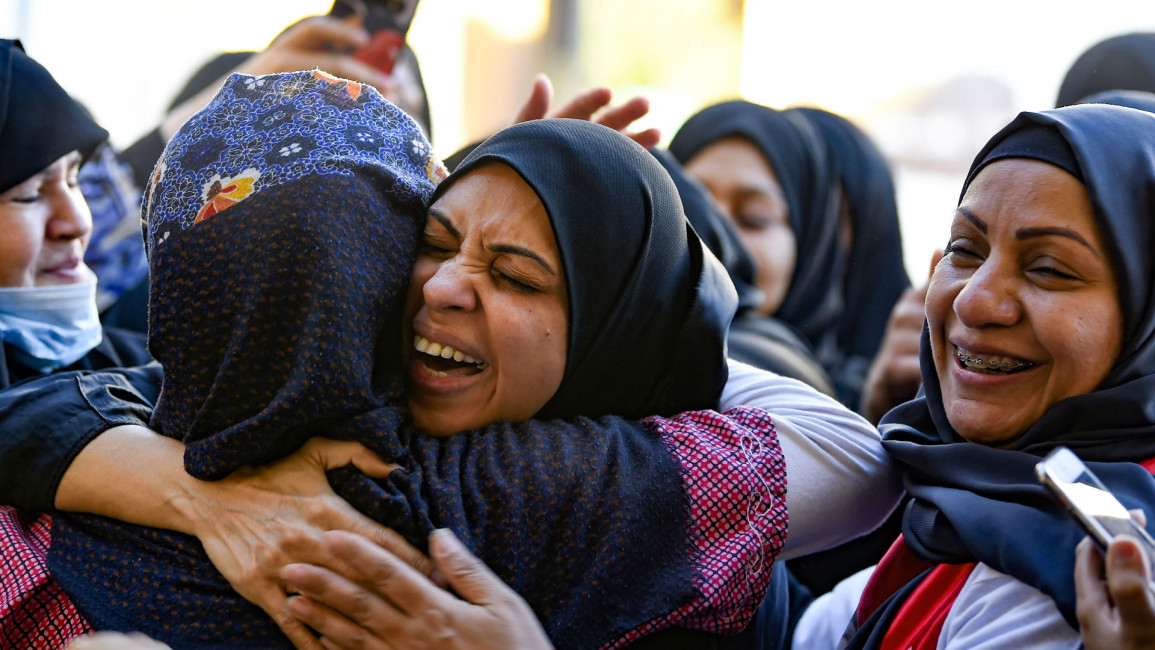Bahrain activist on 'absurd' charges leaves prison: Amnesty
A prominent Bahraini activist was released Thursday after completing a three-year prison term on charges that rights groups said were fabricated as an act of reprisal against government critics.
Hajer Mansoor, 51, her son and nephew were sentenced to prison in October 2017 after being accused of planting a fake bomb in a district south of the capital Manama.
Activist groups said the case was designed to intimidate Bahraini activists, including her London-based son-in-law Sayed Ahmed Alwadaei.
"After three years of suffering, my mother-in-law, Hajer, was released and is on her way home now," tweeted Alwadaei, head of advocacy for the Bahrain Institute for Rights and Democracy (BIRD).
Mansoor's son, Sayed Nizar Alwadaei - who was 18 at the time of his arrest - was sentenced to 11 years behind bars, while her nephew Mahmood Marzooq Mansoor is due to be released in a month, according to BIRD.
"It is time for the government to end this petty vendetta and release my family members," Alwadaei said in a statement issued by rights groups including Amnesty.
Bahrain, a key US ally located between rivals Saudi Arabia and Iran, has been gripped by bouts of unrest since 2011, when authorities cracked down on Shiite-led protests demanding political reform.
Since then, hundreds of protesters have been jailed or stripped of their nationality, with Bahrain claiming Iran trained and backed demonstrators in order to topple the Manama government. Iran denies the accusation.
Amnesty International and Human Rights Watch said Mansoor should have never gone to jail in the first place.
"Hajer Mansoor was imprisoned for three years on patently absurd charges based solely on her family relationship with Alwadaei," Amnesty said in the statement.
"She should never have spent a single day in detention, as her trial was from start to finish an act of reprisal intended to harm a critic of the Bahraini government."
Aya Majzoub, Bahrain researcher at Human Rights Watch, said that Mansoor's release was a "bittersweet moment" after "needless suffering that her imprisonment caused and remembering the two other family members who remain unjustly imprisoned".
Mansoor went on multiple hunger strikes and had been hospitalised during her incarceration.
Their case came under international scrutiny over both the validity of the charges and standards of the trials.


![Minnesota Tim Walz is working to court Muslim voters. [Getty]](/sites/default/files/styles/image_684x385/public/2169747529.jpeg?h=a5f2f23a&itok=b63Wif2V)




![Israeli officials are considering exiling Yahya Sinwar to Sudan as part of a deal to end the war [Getty]](/sites/default/files/styles/image_212x120/public/1251837582.jpeg?h=127ba027&itok=UTeIubIr)
![Debris near Rafic Hariri International Airport [Getty]](/sites/default/files/styles/image_330x185/public/2176162423.jpeg?h=a5f2f23a&itok=MCSK9mkM)
![An Israeli air strike on Jabalia killed teenage journalist Hassan Hamad [Screengrab/X]](/sites/default/files/styles/image_330x185/public/2024-10/hassan%20hamad1.jpg?h=c12e0b96&itok=Rd_dyCVp)